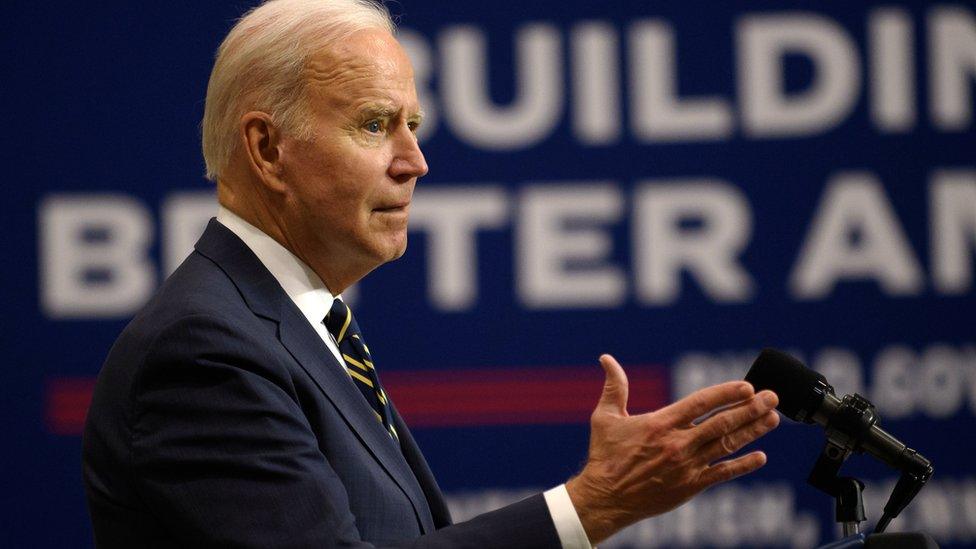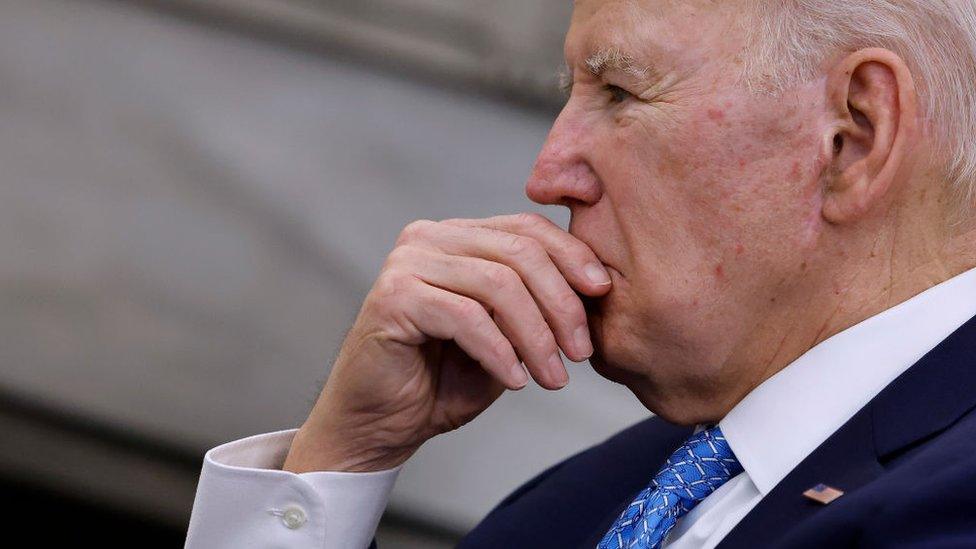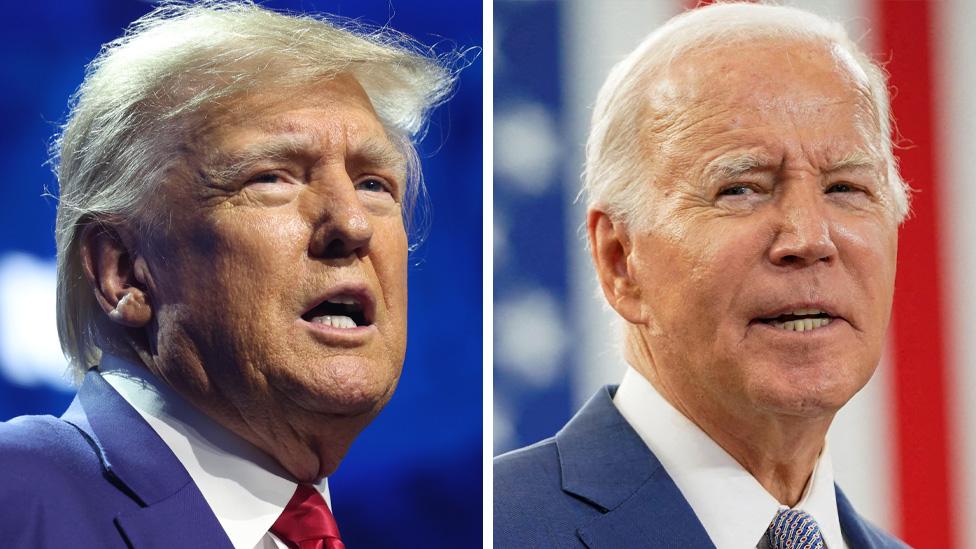Biden calls for tripling tariffs on Chinese metals
- Published

US President Joe Biden has called for a tripling of tariffs on some steel and aluminium from China.
It is the latest protectionist policy to be embraced by Mr Biden as he campaigns for re-election against Donald Trump, who was known for his tough trade stance against China.
The White House said the proposal was aimed at protecting US jobs against "unfair" competition.
China has previously denied claims of dumping steel and aluminium overseas.
Dumping is selling excess product in another country for a very cheap price and can often decimate the local industry's own market of that product.
Speaking to members of the United Steelworkers union in Pennsylvania on Wednesday, the president said the Chinese prices were "unfairly low" due to the government subsidising companies "who don't need to worry about making a profit".
"They're cheating," Mr Biden said. "And we've seen the damage here in America."
He said tens of thousands of steelworker jobs had been lost in the early 2000s because of Chinese imports.
"We're not going to let that happen again," he said.
The Chinese embassy in the US said it "firmly opposes" the measures proposed by Mr Biden.
"Many trading partners of the United States, including China, are strongly dissatisfied with the United States' frequent use of national security, non-market behaviour, overcapacity and other reasons to impose restrictions and politicise trade issues," embassy spokesman Liu Pengyu said in a statement to the BBC.
Mr Pengyu added he hopes the US will work with China "to stop actions that violate international economic and trade rules" and cancel the tariffs.
The International Monetary Fund warned on Tuesday that this kind of geopolitical tension risked damaging global economic growth and pushing inflation in the wrong direction.
The White House has denied that the tariffs - which would lift a key border tax rate from an average of 7.5% to 25% on a tiny fraction of imports - would raise prices in the US.
Mr Biden discussed the proposal - and other pro-manufacturing efforts - at an election rally in Pittsburgh, a key base for the steel industry in the US.
He and Mr Trump are competing for support from working class voters, who could be a deciding voting bloc in November's election.
As well as the tariffs, the White House said it would launch an investigation into unfair trade practices in the Chinese shipbuilding and logistics sectors, acting on a request from the US Steelworkers union and others.
The White House said it was also pushing for action against Chinese firms looking to avoid US border taxes by shipping through Mexico.
Mr Biden has also spoken out against a proposed takeover of US Steel by Japan's Nippon Steel, saying he believed the business should remain US-owned.
The higher tariffs would affect metals imports being reviewed under a so-called 301 investigation, which focuses on policies affecting US commerce.
Many steel and aluminium imports from China already face border taxes, including a 25% duty on certain steel products, which the US put in place under former president Donald Trump using national security justifications.
Those were ruled to be in breach of global trade rules by the World Trade Organization and were later dialled back for many countries.
Those tariffs marked a key turn in Washington's approach to trade, which had long been dominated by free-market, pro-trade consensus.
Mr Trump, who called himself "tariff man", has pledged to be even more aggressive on trade should he be re-elected.
He has proposed a 10% border tax on all imports, which would jump to more than 60% for products from China.
- Published17 April 2024

- Published20 May 2024
